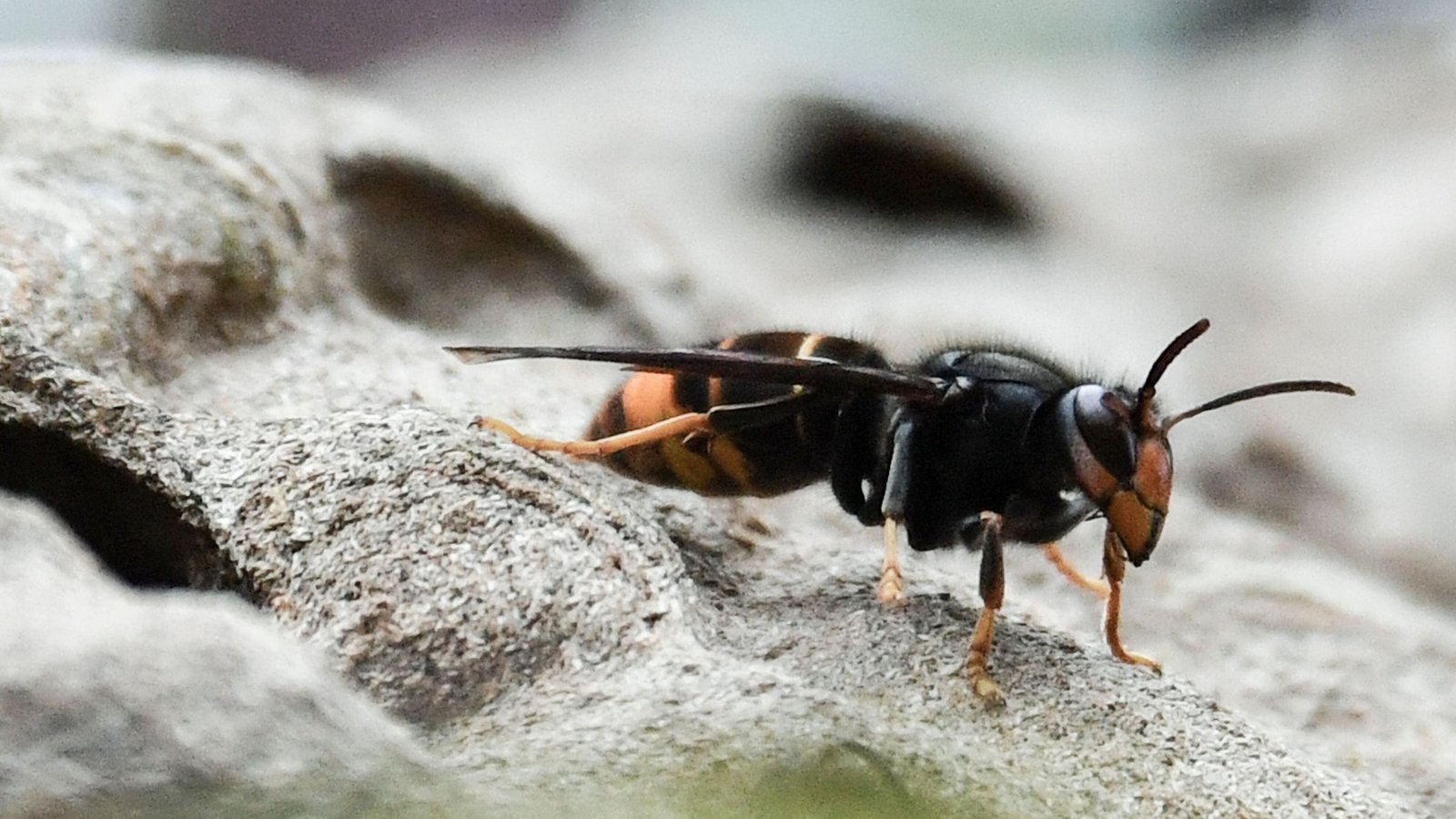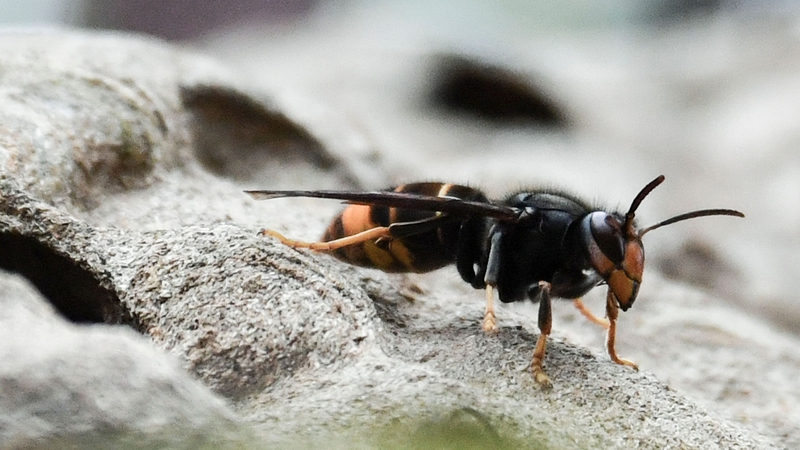UK public urged to report sightings of Asian hornets


The UK public is being urged to report any sightings of Asian hornets this summer, as nature groups warn of a potential surge in damaging invasive non-native species.
The UK’s chief plant health officer Nicola Spence called for beekeepers and the wider public to be increasingly vigilant to the presence of the hornet after record sightings in the country last year.
Asian hornets pose no greater risk to human health than native hornets but threaten honeybees and insect pollinators.
Experts said the species is not established in Ireland or the UK yet, but early trapping is fundamental to eradication efforts.
The first discovery of an Asian hornet in Ireland was in Dublin in 2021, as an environmental scientist warning that with sustained attacks from the Asian hornet honeybee colonies face collapse.
A group representing more than 80 nature organisations warned that recent flooding and warming temperatures have increased the risk of problem species already in the UK growing and spreading.
This includes Japanese Knotweed, which can cause structural damage, Giant Hogweed, with sap that can cause burns to skin, and Himalayan Balsam, which out-competes native species and increases flood risks.
The group said the volatile conditions have also increased the risk of new species establishing themselves in the UK, like the Red Imported Fire Ant, Chinese Mitten Crab and Chinese Mystery Snail, which are making their way across Europe.
Richard Benwell, Wildlife and Countryside Link chief executive said: “Invasive species are already one of the biggest threats to the UK environment, from smothering waterways to outcompeting native species.
“They also cause billions of pounds in damage a year to homes and businesses, and even pose risks to human health.”
The UK’s Environment Department said members of the public should report any sightings of the Asian hornet, which have very dark bodies, a wide orange stripe on the fourth abdomen section and yellow leg ends.
It added that units stand ready to respond quickly and effectively to any further possible sightings after attending every credible report last year and destroying 72 nests in 56 locations – mostly in southeastern England.





